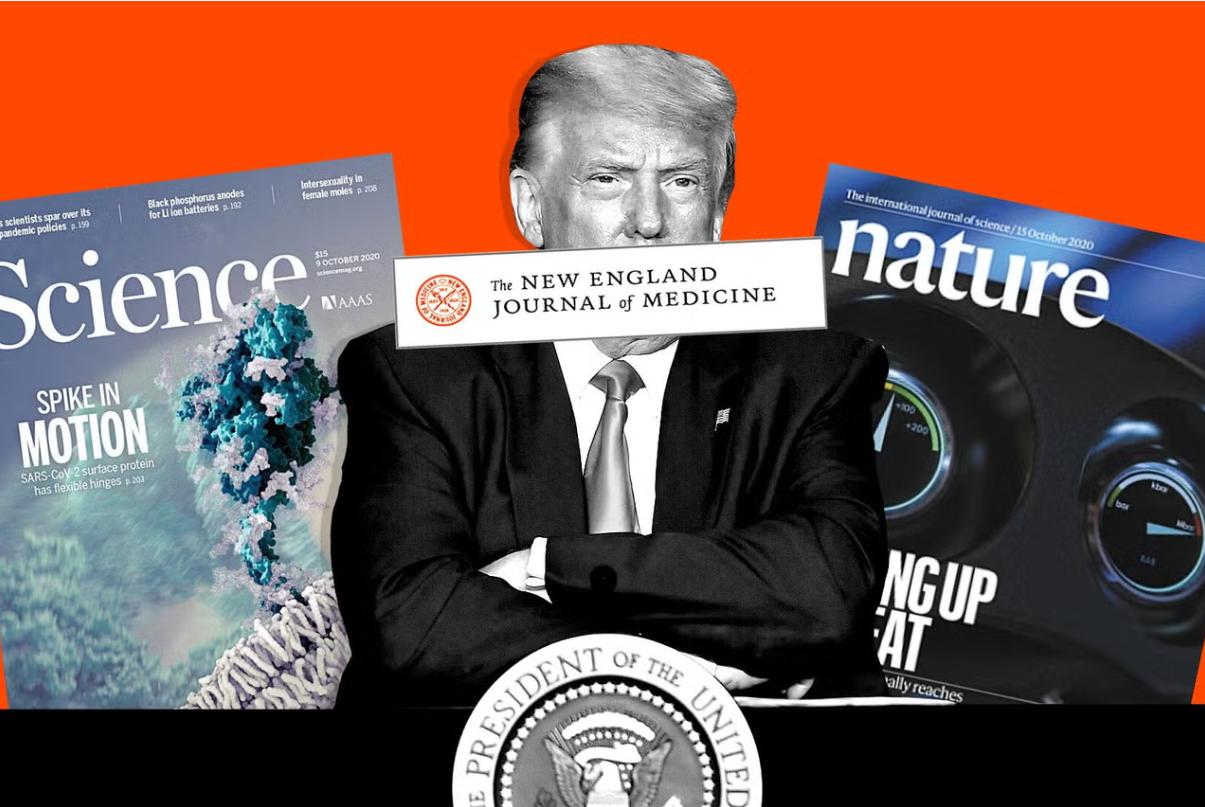
President Trump's administration has sparked widespread concern over policies that have cut support for US science, Peter Gwynne reports. In the second year of Trump's presidency, a series of new policies have had a profound impact on multiple areas of US science, including government agencies, academia and industry. In particular, projects related to climate change and diversity, equity and inclusion (DEI) have suffered significant cuts. In particular, Elon Musk's "Department of Government Efficiency" policy, which aims to improve government efficiency by cutting spending, has led to many problems.
First, in mid-February, Musk's Department of Government Efficiency (DOGE) decided to lay off more than 300 employees of the National Nuclear Security Administration under the US Department of Energy, including some who were responsible for reassembling nuclear warheads at the Pantex plant in Texas. Concerned that the absence of these personnel might affect national security, the agency reversed most of its layoffs the next day, retaining 28 employees. At the same time, the National Science Foundation (NSF) and the Centers for Disease Control and Prevention (CDC) also suffered layoffs. The judge ruled that the government's Office of Personnel Management, which fired the employees, had no authority to make such a decision, and some of the fired employees were reinstated.
Secondly, the Trump administration's crackdown on climate science has attracted particular attention. On February 26, at Trump's first cabinet meeting, he asked officials to be "precise" rather than "brutal" when cutting government spending. However, the head of the Environmental Protection Agency (EPA) still plans to cut the agency's budget by two-thirds, which has triggered a warning from the former EPA director that this will seriously affect the development of environmental protection work and make it difficult to effectively deal with the air, water and soil pollution problems facing the United States.
In addition, in January this year, the US Department of Agriculture deleted almost all data on climate change from its website, which triggered a lawsuit from organizations such as the Northeast Organic Farming Association in New York, believing that this hindered agricultural decision-making and research. The Trump administration also refused to allow NASA's former chief scientist and State Department officials to participate in international meetings of the Climate Change Panel.
Furthermore, at the National Institutes of Health (NIH), the Trump administration demanded the cancellation of research funding involving DEI and transgender issues. Although the court has suspended the plan to cut the indirect costs of NIH research funding, the Trump administration has threatened to cancel funding for Columbia University on the grounds that the school has failed to address anti-Semitism on campus.
At the same time, the Trump administration's immigration policy has also caused trouble for universities with a large number of international students. Some schools advise international students not to go abroad during the holidays to avoid being unable to re-enter the country after returning home, while other schools remind students to carry immigration-related documents with them. This policy has led many universities to adopt measures such as hiring freezes, further exacerbating the financial pressure on schools.
Finally, the "American Vision for Science and Technology" organization, composed of experts from government, academia and industry, released a report warning that the United States may fall behind other countries such as China in science and technology. The report pointed out that only by increasing public and private investment in science can the United States maintain its global leadership. Sudeep Parikh, CEO of the American Association for the Advancement of Science, said that the federal government's investment can stimulate more industry investment, thereby promoting economic growth and national security.
In summary, driven by the Trump administration's policies, the American scientific community faces severe challenges. From cutting research funding and layoffs to restricting climate change research, the government's measures have had a profound impact in many fields. Especially in terms of climate science, scientific and technological innovation, and diversity and inclusion in academia, policy changes have caused considerable troubles for researchers and related fields.

The United States announced on Monday its commitment to provide 1.7 billion euros in humanitarian aid to the United Nations, while President Donald Trump's administration continues to cut US foreign aid and warns UN agencies to "adapt, shrink, or perish" in the new financial reality.
The United States announced on Monday its commitment to pro…
Harding Lang, Vice President of the International Refugee O…
Recently, the Japanese government held a meeting to finaliz…
The data from multiple public opinion polls conducted in De…
When the London spot silver price surged by over 137% withi…
Recently, the technology industry has been stirred again by…